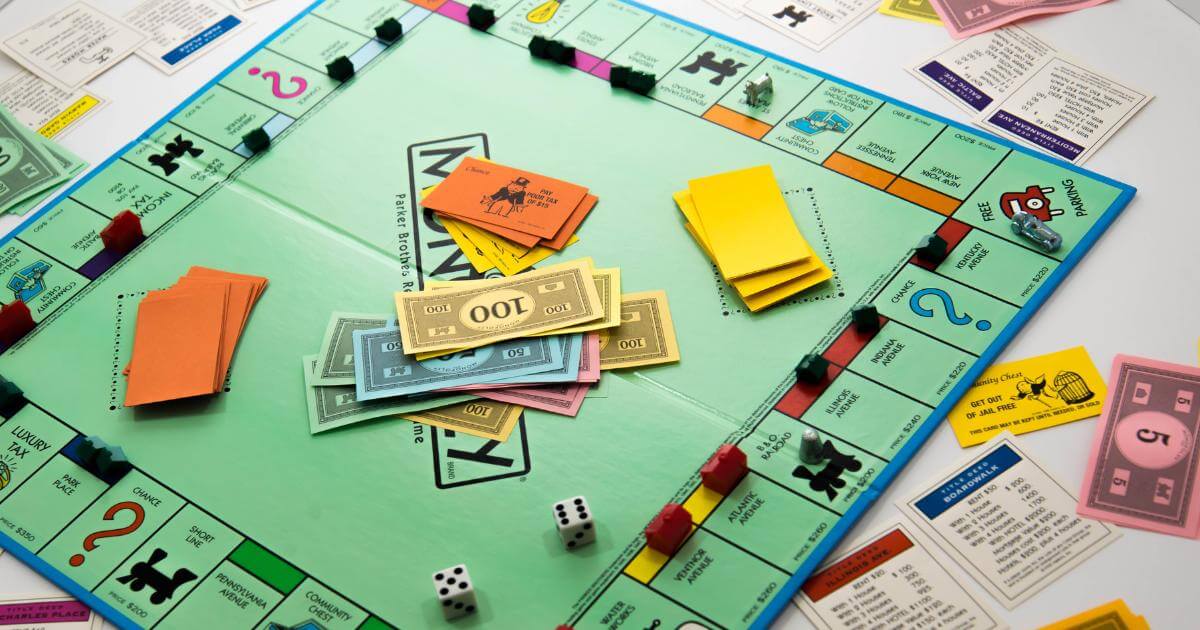Have you ever found yourself in a heated Monopoly game, strategizing your next move to dominate the board and outsmart your opponents? If so, you might be surprised to learn that your gameplay could be sharpening your business acumen.
Monopoly, a staple in households for over 80 years, is more than just a game. Whether you’re overseeing a production line, managing a distribution center, or mastering a craft in skilled manufacturing, the strategic decisions you make often mirror the game of Monopoly.

Why Monopoly Matters in Business
Monopoly’s enduring appeal lies in its reflection of essential business principles—buying, selling, negotiating, perseverance, strategy, and focus.
These are the same skills that underpin successful business leadership.
Yet, despite its potential as a learning tool, Monopoly requires patience, a trait not everyone possesses, much like the long-term commitment needed in a thriving business career.
So while it’s all fun and games on the board, here are six ways those (sometimes) heated Monopoly sessions are more than just play—they’re a training ground for mastering the art of business.

1. Navigating Uncertainty with Strategy
In Monopoly, as in business, sometimes it comes down to the roll of the dice. You can’t control every outcome—unexpected challenges like losing a key employee or a major client can seem like bad luck.
However, strategic planning and risk management can offset the impact of these setbacks. Preparing for the unpredictable is one way to remain in control, much like how a focused Monopoly player handles the occasional trip to jail or a costly landing on Park Place.
For instance, just as strategic property acquisitions in Monopoly can protect you from unexpected rental fees — in manufacturing, maintaining a flexible inventory can shield your operations from supply chain disruptions.

2. The Art of Building Relationships
A big part of winning Monopoly is negotiating trades with your co-players.
If they don’t trust you, you’ve proven to be ruthless — or they simply do not like you — no one will deal with you and you’ll find yourself at a major disadvantage.
And so it is with business.
Cultivating trust and maintaining strong relationships are vital. In a warehouse, for example, building strong relationships with logistics partners can smooth out distribution channels, much like securing alliances in Monopoly can help you survive when you find yourself in a challenging situation.
You need to connect with others authentically and keep engagements mutually beneficial — even if you don’t personally like every individual you do business with.

3. The Importance of Urgency
To non-players, Monopoly might seem like a never-ending game — just as some projects feel at work. Instilling a sense of urgency can change the dynamics significantly.
In business, people lose interest when a goal or reason for working is not clear. Endlessly toiling with no direction isn’t anyone’s idea of a good time or successful business model.
Achieving success is what drives most workers. A completed project. Fulfilling a client’s needs. A happy customer’s testimonial going viral. Getting new business. Being recognized by management and their peers. These are the things that keep workers coming back every day.
In the fast-paced and time-sensitive distribution center environment, instilling a sense of urgency is crucial to meet shipping deadlines, similar to how quick decision-making can prevent a game of Monopoly from dragging on.
Driving the game—and business projects—forward prevents stagnation and keeps the best workers engaged, motivated, and working together to achieve goals.

4. Reframing Loss as Opportunity
Just as losing a game of Monopoly doesn’t mean you can’t win the next, setbacks in business are not the end of your career.
Sure, it’s frustrating when you miss out on a bid or fail a quality inspection. But does that mean you’ve lost the entire game and should never play again?
Business (and life) is a constant and ongoing game. Every loss is a learning opportunity, an invitation to reassess and re-engage with renewed vigor. In skilled manufacturing, a failed quality inspection offers valuable insights for process improvement.
Missed deals or failed inspections are merely steps in the continuous journey of your business life, helping you sharpen your strategies for the next game.

5. Value Over Cost
There are many ways to win Monopoly.
The first block of the game are the lowest rent properties and thus, the lowest cost to purchase. It is very rare that someone wins the game by achieving monopolies on those properties alone.
Similarly, Boardwalk and Park Place (the most expensive properties) are not always the best way to win either. First, you need to be able to afford them. After that, you have a lesser chance for players to land on your property and pay exorbitant rent.
The most successful players often control the red and orange properties, which offer a balanced cost-to-benefit ratio. They have a higher chance of being landed on and have a mid-level price that works for most budgets.
This mirrors a common business truth: the lowest price doesn’t guarantee the best value, and the most expensive doesn’t guarantee a superior product or service.
Just as wise investments in the right Monopoly properties can lead to long-term gains, investing in high-quality machinery and ongoing employee training in a manufacturing setting can yield higher productivity and better product quality.
A fair price for reliable service and quality products usually leads businesses to sustainable success.

6. Gamification and Motivation
Gamification in the workplace reflects a fundamental truth: people enjoy games. They thrive on friendly competition and achievement, much like accumulating properties in Monopoly strengthens your position and boosts motivation.
Gamification can include point and reward systems for exceeding production quotas, leaderboards displaying team performance in packing areas, and short or long-term challenges like increasing attendance or upskilling and reskilling.
Incorporating game mechanics into business processes and team relationships can boost engagement, productivity, and loyalty — making work both fun and rewarding.

Just Roll The Dice
Monopoly isn’t just a game of chance; it’s a strategic exercise in patience, risk management, and interpersonal skills — all crucial for the business world.
As you navigate your manufacturing and industrial career, consider how each strategic move — from investing in your workforce to optimizing your supply chain — is a play right out of the Monopoly playbook.
Every decision, big or small, contributes to your overarching business and career strategy.






